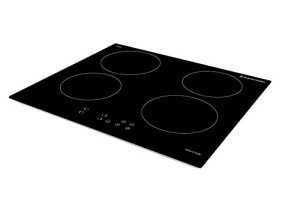Understanding Induction Hob Warranties: What You Need to Know
Induction hobs have actually ended up being progressively popular in modern cooking areas due to their efficiency, speed, and sleek design. As consumers invest in premium devices, understanding the service warranties that cover these items is vital. An induction hob warranty can offer peace of mind, protecting customers from possible flaws and breakdowns. This article looks into the complexities of induction hob service warranties, including what they cover, the length of time they last, and tips for declaring warranty service.
What is an Induction Hob?
Before diving into warranties, it's necessary to comprehend what an induction hob is. An induction hob is a cooking surface that uses electromagnetic energy to heat pots and pans directly, offering precise temperature level control. This innovation enables for much faster cooking times and can enhance energy effectiveness compared to traditional gas or electric stovetops.
Advantages of Induction Hobs
- Efficiency: Induction hobs warm up quicker, minimizing cooking time and energy usage.
- Safety: The cooktop surface area stays cool to the touch, decreasing the risk of burns.
- Control: Instant adjustments to temperature permit much better cooking precision.
- Cleaning up: The flat surface produces much easier cleaning as spills do not burn onto the hob.
What Does an Induction Hob Warranty Cover?
Induction hob guarantees typically cover the following elements:
| Coverage Area | Information |
|---|---|
| Production Defects | Covers concerns occurring from the manufacturing process that impact the performance or safety of the hob. |
| Electrical Components | Security versus faults in electrical elements, such as circuitry or control panels. |
| Glass Surface | Many service warranties cover the glass cooktop versus flaws or breaking due to producing flaws (not unintentional damage). |
| Labor Costs | Some warranties might also consist of protection for labor costs related to repair work or replacements. |
| Parts Replacement | Includes the replacement of malfunctioning parts as identified by the warranty terms. |
Crucial Exclusions
While induction hob warranties can supply extensive coverage, they typically have significant exclusions:
- Accidental Damage: Most guarantees do not cover damage from mishaps, abuse, or neglect.
- Wear and Tear: Normal wear and tear from use is generally not covered.
- Inappropriate Installation: Damage due to incorrect installation or modifications can void the warranty.
- Non-certified Repairs: Repairs made by unauthorized company might also nullify warranty coverage.
Warranty Duration: How Long Should You Expect Coverage?
The warranty duration for induction hobs varies by brand name and model. Typically, you can anticipate:
- Standard Warranty: Most makers use a one to two-year basic warranty.
- Extended Warranties: Some brands supply alternatives for extending the warranty approximately 5 years or longer. These extended warranties may come at an additional expense.
- Particular Components: Certain parts, like the cooktop glass, may have separate warranty periods, which might be longer than the standard warranty duration.
Tips for Maximizing Your Warranty
To ensure that you derive the optimum gain from your induction hob warranty:
- Register Your Product: Many producers require product registration within a specific period after purchase to activate the warranty.
- Keep Your Receipt: Always conserve the purchase invoice as proof of purchase.
- Follow Care Instructions: Adhere to the producer's care and use instructions to avoid damage and preserve warranty protection.
- Document Issues: Keep records of any issues encountered, consisting of photos and notes on efficiency concerns.
How to Claim Warranty Service
Claiming warranty service usually includes the following steps:
- Review Warranty Terms: Before making a claim, examine your warranty pamphlet to comprehend what is covered and the procedure.
- Contact Customer Service: Reach out to the manufacturer's customer support department to report the concern.
- Offer Necessary Documentation: Be ready to send evidence of purchase and any relevant documents concerning the issue.
- Follow Instructions for Service: The manufacturer may advise you on the next steps, which might involve sending out the appliance for repair or having a specialist visit your home.
Often Asked Questions (FAQs)
Q1: What should I do if my induction hob malfunctioned after the warranty ended?
A1: After the warranty period ends, you can seek repairs through a certified technician, however you will likely incur the expenses without warranty coverage.
Q2: Can I transfer my induction hob warranty to a brand-new owner if I sell my house?
A2: Many guarantees are non-transferable, but it is necessary to check the specific terms of your warranty regarding ownership modifications.
Q3: Is there a distinction between a maker's warranty and an extended warranty?
A3: Yes, a maker's warranty is normally included with your purchase and covers flaws for a particular duration, while an extended warranty may be acquired for additional coverage beyond the basic terms.
Buying an induction hob can considerably enhance the efficiency and functionality of your cooking area. Nevertheless, comprehending your warranty protection is just as essential as the device itself. By understanding what is covered, for how long the warranty lasts, and the steps to declare service, customers can guarantee they are secured against prospective issues. In Read the Full Guide of modern devices, an induction hob warranty functions as an essential safeguard, providing users with self-confidence in their cooking equipment.

